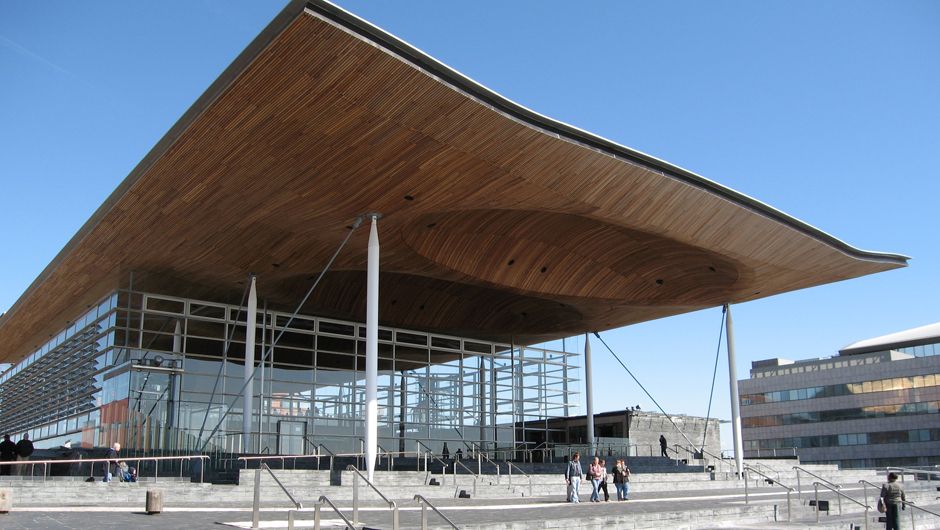PLANS to increase the number of Senedd members and change the electoral system have passed their first hurdle.
MSs agreed the general principles of the Senedd Cymru (Members and Elections) bill, which would expand the Welsh Parliament from 60 to 96 members.
Under the bill, the 32 constituencies that will be used in the next general election would be paired to create 16 for the 2026 Senedd vote – with each returning six members.
Senedd elections would be held every four years under a “closed list” form of proportional representation, which would see people voting for parties rather than specific candidates.
Mick Antoniw, the Welsh Government’s counsel general and constitution minister, stressed compromise is necessary because the bill requires a two-thirds majority to become law.
He argued the proposed closed lists would be simpler than, and superior to, the current additional member system – a mix of proportional representation and first past the post.
“It will improve democracy and ensure every vote counts, it will lead to a Senedd that is far more representative of the people of Wales,” he said.
If passed, the bill would also increase the size of the Welsh Government from 14 to 19, including the first minister, ministers, deputies and the counsel general.
Mr Antoniw rejected two Senedd committees’ calls for the removal of powers in the bill for ministers to further increase this limit to 21 without full legislative scrutiny.
He also rejected calls to reduce a proposed 10% variance in the number of voters in each constituency, which is twice that allowed in Westminster elections.
The member in charge of the bill pointed to the need for “future proofing” and flexibility.
Darren Millar, the Conservatives’ shadow constitution minister, said Wales needs more doctors, nurses, dentists and teachers – not 60% more politicians in the Senedd.
He claimed there is no public mandate as he criticised “woolly” references to Senedd reform in Labour and Plaid Cymru manifestos for the 2021 election.
“No-one mentioned this closed-list voting system that has been proposed,” he said.
“This is a system that amounts to a power grab by political parties, taking power away from the voters and preventing them from being able to vote for a candidate of their choice.”
Mr Millar warned that losing direct accountability between elected representatives and the public they serve would be devastating for Welsh democracy.
Calling for a referendum, he said: “Give the people of Wales the choice on whether to endorse this atrocious system … and I can tell you which fingers they will use to salute you.”
David Rees, who chaired the Senedd reform committee, which produced a stage-one report on the bill, raised concerns about the rejected recommendations
The Aberavon MS stressed the importance of public confidence in the proposed reforms.
Alun Davies, a fellow Labour backbencher, who represents Blaenau Gwent, criticised the Conservatives for failing to oppose more “cronies, donors and hangers on” at Westminster.
Heledd Fychan, for Plaid Cymru, described the bill as a major step forward for Wales, making the Welsh Parliament more effective and representative.
The South Wales Central MS said: “These are ambitious plans … Wales will be the first national legislature in the UK to move away in full from the first-past-the-post system.”
She told MSs that Plaid Cymru also favours STV or a flexible/open-list system but her party’s priority is to ensure a bold package of reforms is in place by 2026.
Adam Price urged MSs to grasp the opportunity – pointing out that progress can be painfully slow in Wales, with various commissions and panels since the Kilbrandon report in 1973.
The former Plaid Cymru leader argued that the Senedd is underpowered, raising the example of only one private member’s bill being passed in the past eight years.
Mike Hedges, a Labour backbencher who represents Swansea East, called for further consultation on the electoral system as the bill moves forward.
Raising concerns about the size of constituencies, particularly any that’s paired with the new Brecon seat, he argued the Senedd and UK Parliament should use the same boundaries.
Tom Giffard, a Conservative, warned the reforms risk eroding the link between the public and their representatives, making Wales less democratic.
The South Wales West MS said: “If we vote for more politicians without asking the people’s permission, all we’ll do is create the impression that this isn’t a parliament for them.”
The Conservatives’ Natasha Asghar described Senedd reforms as a vanity project, suggesting the money would be better spent on 150 consultants to ease waiting times.
Challenged about where the extra doctors would come from, the South Wales East MS said: “Where there’s a will, there’s a way – if you’ve got the money, anything’s possible.”
Jane Dodds, the Lib Dems’ leader in Wales, described the bill as a once-in-a-generation opportunity to revitalise democracy but said the current proposals “fall far, far short”.
Ms Dodds argued the proposed closed list system would be a profound and lasting mistake, saying: “I have not heard a single reason why this represents a necessary compromise.”
With no plans for by-elections in future, James Evans, the Conservative MS for Brecon and Radnorshire, raised the risk of vacant seats leading to political paralysis in the Senedd.
Closing the debate, Mr Antoniw said the bill is an investment in democracy and 0.07% of the budget is a price worth paying.
MSs backed the proposals 39-14 in the vote on January 30. The bill now moves to stage two, which will see a committee of the whole Senedd consider amendments.



















